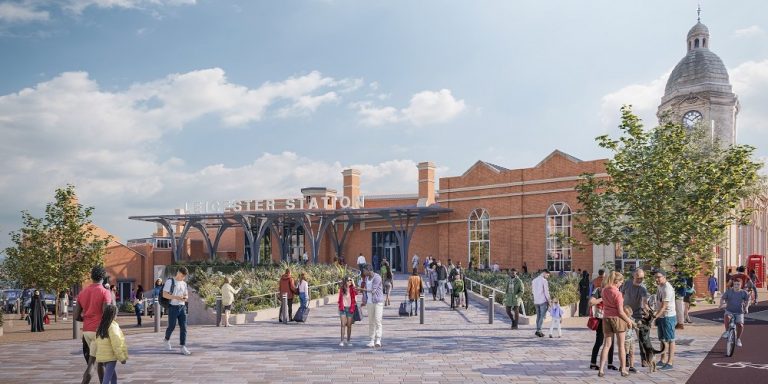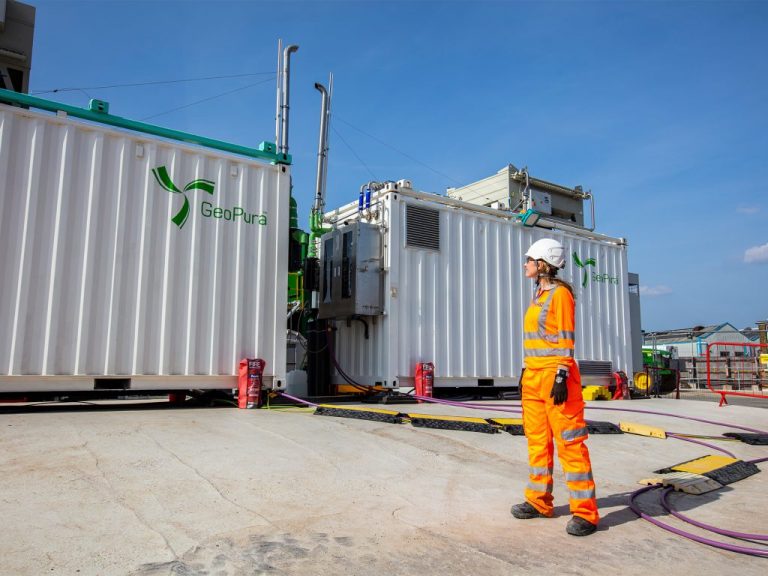Locally-owned franchise expands into London
New images reveal how Leicester railway station will look after radical overhaul


Strongest year to date for Midlands deal activity
Notts green hydrogen pioneer backed with £36m investment
Further information submitted to support £200m Leicestershire logistics hub planning application
The Drummond Estate, a local family trust, and partners Landchain, have submitted additional information as part of the planning process for a £200 million logistics hub close to junction 21 of the M1.
The site is allocated in Blaby District Council’s adopted Local Plan for employment use and is the only single large site capable of meeting the Council’s employment land requirements fully and responding to the pressing need for strategic logistics space.
The proposals would create approximately 2,000 new jobs and a breadth of opportunities in the employment training sectors. It would deliver 106,830 sq m of advanced warehouse and distribution space with integral offices, offering the ability to sub-divide plots to provide flexibility to satisfy a wide range of demand. Set within a new woodland belt and landscape framework, it also includes a specialised Logistics Training Centre, which would assist in plugging the growing skills-gap for high-tech logistics employees across the region.
The planning application for the 30-hectare site, which lies to the east of the M1 and south west of the Enderby Park and Ride, was submitted in 2019. The new information submitted includes:
Design and Access Statement – to reflect the new design and updated drainage strategy, including the removal of the proposed access road from St Johns, replacing this with an increased area of public open space within the east of the site.
Environmental Statement – which reflects the amends to the scheme and includes accumulative impacts of any further new developments since the original application was submitted in 2019.
Transport Assessment – updated following further extensive modelling work to assess the proposed development in Leicestershire County Council’s Pan Regional Transport Model. An extensive multimillion-pound package of highways and transport improvements have been identified and incorporated, including those identified by Leicestershire County Council, such as:
– Lubbesthorpe Way widening scheme
– Upgrades to the B4114/Park & Ride and B4114/Penman Way signal junctions to MOVA signal operation
– Desford Crossroad scheme improvement
– Travel Packs for all new employees with 6-month bus pass
– New footpath/cycleway along St Johns
– Delivery of a highway scheme of capacity enhancement at the A563 / Meridian South roundabout
It has also been agreed that the Proposed Development will include for a Framework Travel Plan and a strategy will also be agreed for the provision of a bus service to serve the development.
As a result of the additional work and mitigation measures, the Local Highway Authority has confirmed that the impacts on the road network would not be severe and concludes that the residual cumulative impacts of development can be mitigated in accordance with the NPPF.
Martin Ward, on behalf of the landowners The Drummond Estate and Landchain, said: “We have worked closely with the local highways authority and planning authority to agree the scope of the additional work and have now submitted this so that the application can be considered.
“This £200 million high quality development supports the Council’s allocation of this site for employment uses in its adopted Local Plan and will create thousands of local jobs. The Training Centre will assist those looking to upskill within today’s high-tech logistics sector.”
The logistics sector is fast-growing and becoming increasingly more technologically sophisticated, it already accounts for more than a tenth of jobs in the region.
Ben Grinnall from Landchain said: “With the added benefit of access to a large workforce in the area, this strategic location is ideal to realise the growth opportunity of this sector, benefitting the regional economy.
“The proposal creates a strong landscaped framework within which this very high quality, environmentally-advanced development will be set. It will help to meet the needs of national and local businesses with well-designed employment space at a Grade A logistics site.”
Leicestershire-based Stephen George was the architect.
Survey shows 8% average drop in employee engagement since the pandemic
Manufacturing output volumes fall at fastest rate in over two years
- Manufacturing output volumes fell in the three months to February (weighted balance of -16%, from -1% in the three months to January), a significant disappointment to last month’s expectations (+19%), and at the fastest pace since September 2020. Output is expected to rise moderately in the three months to May (+7%).
- Output fell in 11 out of 17 sectors in the three months to February. The decrease in output reported this quarter was largely driven by the motor vehicles & transport equipment, chemicals and paper, printing & media sectors.
- Total order books were reported as below “normal” in February, to a similar extent as in January (-16% from -17%). This was broadly in line with the long-run average (-13%). Export order books were also seen as below normal and to a greater extent than last month (-27% from -22%). This was below the long-run average (-18%).
- Expectations for average selling price inflation in the three months ahead were the lowest since May 2021 (+40%, from +41% in January), having declined steadily from the multi-decade highs seen in early 2022 (+80% in March 2022). But they remained well above the long-run average (+6%).
- Stocks of finished goods were seen as adequate in February, with the balance broadly similar to January (+9% from +12%).












